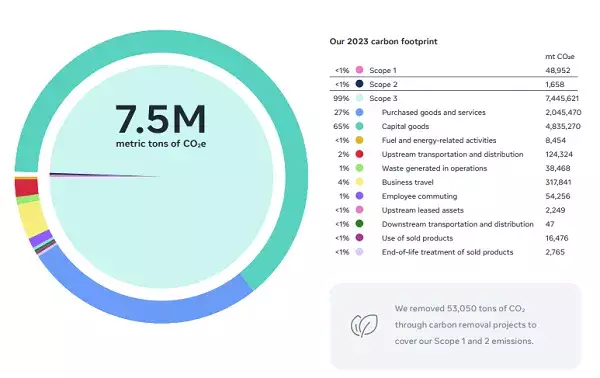In an age where technology shapes human interaction and culture at an unprecedented rate, Meta Platforms Inc. (formerly known as Facebook) has unveiled its “Responsible Business Practices Report.” This comprehensive document encapsulates Meta’s multifaceted approach to various challenges and advancements facing the organization in today’s digital ecosystem. Generating significant attention, this 144-page report highlights the company’s advancements in artificial intelligence (AI), commitment to environmental sustainability, and a vision for the metaverse, while also addressing pressing issues like data privacy, diversity, and social impact.
Central to the report’s themes is the strategic emphasis on AI technology. Meta asserts that their objective is to democratize AI tools, ensuring access across diverse geographical and socio-economic landscapes. This approach reflects a broader imperative: if technological advancements are concentrated within affluent regions, the resultant disparities could exacerbate existing inequities, further hindering opportunities for underrepresented communities.
By integrating advanced generative AI across various business domains, Meta aims to foster inclusive economic growth and enhance connectivity. The company envisions a future where AI capabilities can facilitate immersive experiences that transcend traditional engagement barriers. Emphasizing open-source development of AI technologies is a crucial commitment that Meta will need to uphold; it highlights the necessity of bridging gaps between different populations in the ongoing tech revolution.
A significant aspect of Meta’s vision is the development of the metaverse—an expansive, immersive digital environment that integrates augmented reality (AR) and virtual reality (VR) technologies. By promoting the metaverse as the next frontier in social technology, Meta aims to create shared spaces that enhance user interaction and engagement. Within this ambitious framework, the integration of AI will be pivotal in cultivating personalized and immersive experiences.
Meta’s report points out that these innovative spaces aspire to hold potential beyond mere entertainment, positioning themselves as platforms for social, educational, and economic growth. While this lofty vision is compelling, it raises critical questions about user safety, data integrity, and ethical implications. The pursuit of these advanced technologies must include a rigorous evaluation of their impact on society at large.
Amidst AI innovation and the metaverse’s evolution, Meta’s report also highlights significant investments in privacy protection, reflecting a more proactive stance towards safeguarding users’ data and addressing privacy concerns. The company has dedicated over $5.5 billion since 2019 to bolster privacy initiatives aimed at risk identification, early intervention, and embedding robust privacy standards into product design. Nevertheless, the legacy of privacy scandals looms large over Meta, and overcoming skepticism will require ongoing transparency and accountability.
While Meta’s concerted efforts to enhance data privacy are commendable, the effectiveness of these initiatives will ultimately hinge on public perception. Continuous dialogue with users, alongside real action towards extensive privacy compliance, will be imperative to rebuild trust shattered by past controversies.
Interestingly, the report touches on Meta’s involvement in political contributions through its Political Action Committee (PAC). This maneuver elicits divided opinions among stakeholders, raising concerns regarding the ethical implications of corporate influence on political processes. Although the company clarifies that it refrains from endorsing candidates directly, its PAC activities pose questions about the symmetry of power in political landscapes when bolstered by corporate financial support.
As Meta outlines its guiding philosophies and social impact initiatives, the stark reality remains that the organization exists within a turbulent socio-political environment. Maintaining a balance between business interests and the societal good is a complex task that requires vigilance and genuine commitment to ethical practices.
Concluding Perspectives: Navigating Future Challenges
While Meta’s Responsible Business Practices Report endeavors to cast the company in a favorable light, it inevitably stirs a mix of optimism and skepticism. The bold assertions regarding AI, the metaverse, and privacy improvements are promising, yet one must critically examine the potential repercussions of rapid innovation. The history of social media has underscored how unregulated growth can yield harmful consequences.
Ultimately, the trajectory Meta chooses will profoundly impact not only the company itself but indeed the broader digital landscape. As it forges ahead, continuous introspection, responsible practices, and genuine engagement with its user base will be essential in navigating the complexities of modern technology responsibly.


Leave a Reply
You must be logged in to post a comment.